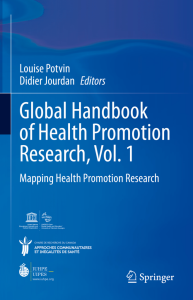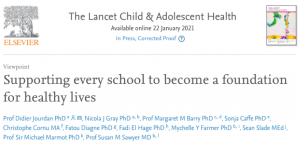The global survey on the safe reopening of schools in now available in Arabic, English, French, German, Portuguese and Spanish. You are invited to complete the survey and to share the survey within your network. The aim of the survey is to gather the experiences and opinions of education and health professionals about the processes in place in their countries and territories to reopen schools safely during the COVID-19 pandemic, and to keep them open.
The survey explores the public health measures that have been put in place in schools; communication of guidance at national and/or local level, and the facilitators or barriers to safe reopening. The survey should take 10-20 minutes to complete. It is a follow-up of the survey which was conducted in May/June 2020.
The survey is conducted by the UNESCO Chair and WHO Collaborating Center in Global Health & Education with the support of its consortium partners from ASCD, CHAIN, Education International, EUPHA Child and Adolescent Public Health, EUPHA Health Promotion, GCU London, IAAH and their Young Professionals’ Network, IUHPE, NCD Child, UCA and the SHE Network.

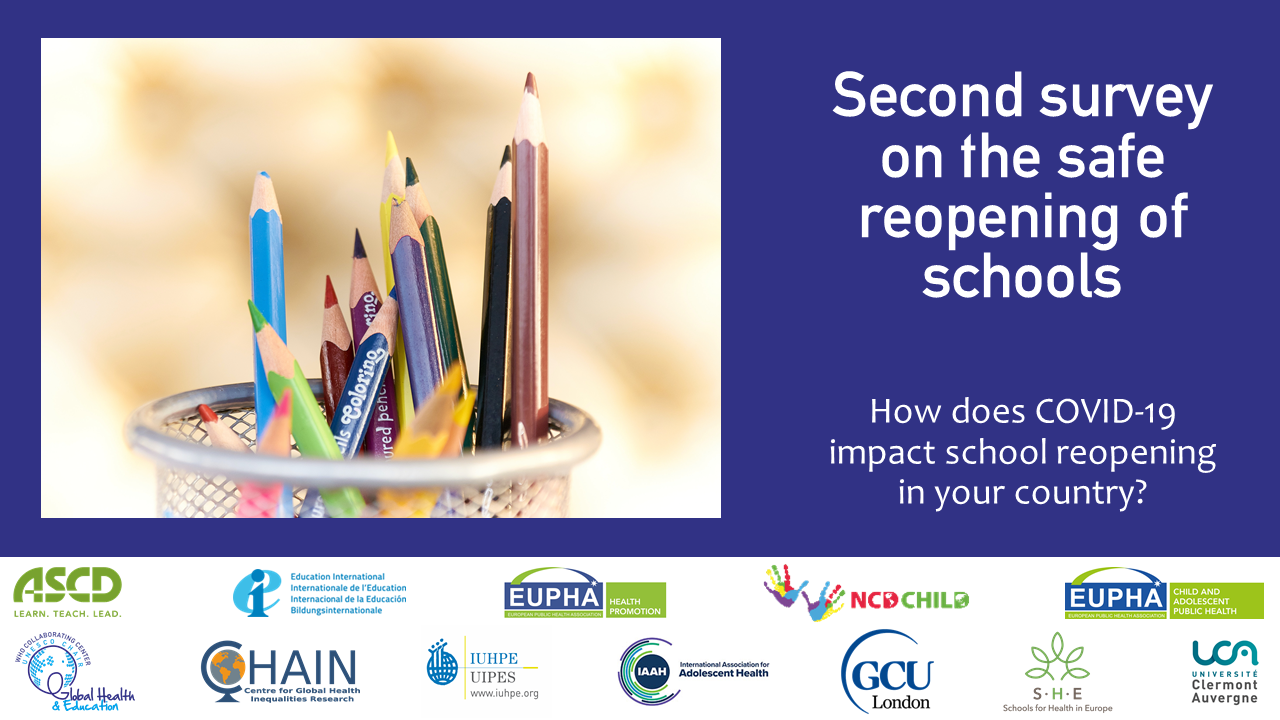
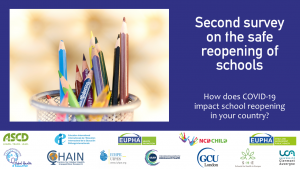
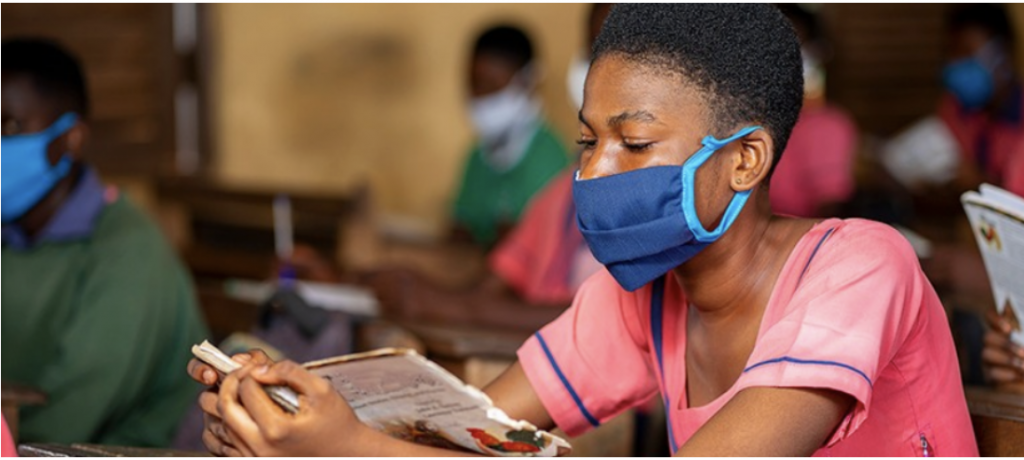

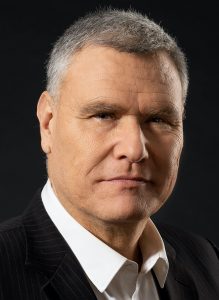 About Didier Jourdan
About Didier Jourdan